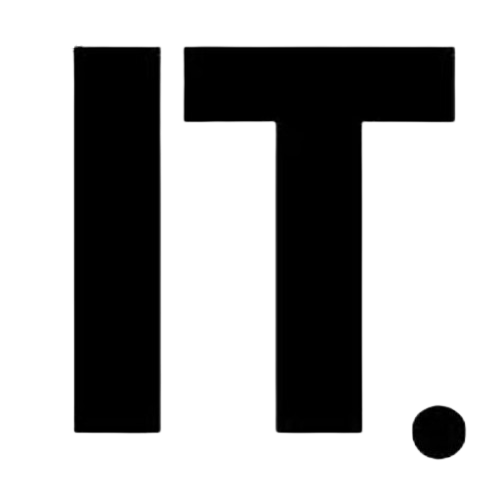In a world where every minute counts, establishing a productive morning routine has become essential for those seeking to enhance their productivity and overall well-being. The habits you cultivate in the morning can set the tone for your entire day, affecting your energy levels, focus, and even your mental clarity. This comprehensive guide will provide you with actionable “productive morning routine tips” to help you start your day on the right foot—no matter your current schedule or lifestyle.
Contents
- 1 Wake Up Earlier (Without the Struggle)
- 2 Fuel Your Body Right
- 3 Prioritize Mindfulness Over Screens
- 4 Establish a Movement Routine
- 5 Prioritize Your Tasks for the Day
- 6 Limit Decision Fatigue
- 7 Limit Distractions
- 8 FAQs
- 8.1 Q: How long does it take to build a routine?
- 8.2 Q: What is the best time to wake up in the morning?
- 8.3 Q: Why is breakfast so important?
- 8.4 Q: Can I create a productive morning routine with a busy schedule?
- 8.5 Q: What if I’m not a morning person?
- 8.6 Q: How can journaling help me in the morning?
- 8.7 Q: Should I check my email in the morning?
- 8.8 Q: How can I stay consistent with my morning routine?
- 8.9 Q: Can nature help improve my morning routine?
Wake Up Earlier (Without the Struggle)
Getting up early can be a challenge, especially for those who aren’t naturally morning people. However, waking up earlier can give you a head start on the day and create a sense of calm before the hustle begins. But how can you change your morning wake-up time without feeling groggy or frustrated?
The 10-Minute Increment Method
A gradual approach is key to adjusting your sleep patterns without creating unnecessary stress. The 10-Minute Increment Method is an effective strategy that allows you to wake up earlier by 10-minute increments each day. According to the Sleep Foundation, this approach not only makes the transition feel manageable but also helps your body adjust to the new schedule with greater ease.
Start by setting your alarm clock 10 minutes earlier than usual. Once you feel comfortable with this change, incrementally adjust your alarm by another 10 minutes. Continue this process until you reach your desired wake-up time. This method helps your body adapt slowly, reducing fatigue and grogginess that can occur from sudden changes in sleep patterns.
Fuel Your Body Right
A productive morning is impossible without a well-fueled body. Breakfast is often called the most important meal, not just for its nutritional value but also for its role in setting your energy levels for the day.
Quick Breakfasts with Oats & Smoothies
One of the best things you can do to revitalize your mornings is to incorporate nutritious, quick breakfast options that are easy to prepare. Two standout options are overnight oats and smoothies, both of which can be tailored to fit your taste preferences.
Overnight Oats Recipes: Overnight oats are a fantastic option because they require minimal effort yet provide sustained energy. Mix oats with your choice of milk (dairy or plant-based) and allow them to soak in the refrigerator overnight. In the morning, simply add toppings such as fruits, nuts, seeds, or a drizzle of honey. Recipes like Peanut Butter Banana Overnight Oats can make mornings exciting and delicious.
Smoothies: On days when you’re pressed for time, smoothies can be a quick and fulfilling alternative. Using a base of spinach, kale, or other greens along with a banana, some nut butter, and your choice of milk or yogurt can give you a nutritious boost. Don’t hesitate to mix in superfoods like chia seeds, flaxseeds, or protein powder to elevate your smoothie’s nutritional profile.
Prioritize Mindfulness Over Screens
In our digital age, it’s all too easy to reach for our smartphones or tablets first thing in the morning. However, prioritizing mindfulness can set a more positive and focused tone for your day.
5-Minute Meditation or Journaling
Taking just five minutes in the morning to engage in mindfulness can transform your mindset and enhance your productivity. Whether it’s through meditation or journaling, these practices help center your thoughts and clear your mind.
Meditation: Apps like Headspace or Calm offer excellent guided meditation sessions for beginners. Even a brief session focusing on your breath can help calm anxiety and stress.
Journaling: Alternatively, you can try journaling as a method of mindfulness. Spend a few minutes writing down your thoughts, feelings, or gratitude. Expressing gratitude, for example, has been shown to improve mood and promote positive mental health. There are various styles of journaling; consider using bullet journals or gratitude journals to make the experience enjoyable.
Establish a Movement Routine
Incorporating physical activity into your morning routine is crucial for boosting energy levels and focus. Whether it’s yoga, jogging, or a quick home workout, movement enhances blood flow and releases endorphins that uplift your mood.
Quick Workouts or Stretching
You don’t need an hour at the gym to benefit from exercise in the morning. Even a quick 10- to 15-minute workout can set the tone for a productive day. High-intensity interval training (HIIT) or yoga sessions are fantastic slot-filling options:
HIIT Workouts: A quick HIIT workout can involve exercises like jumping jacks, burpees, and squats completed in short bursts. You can find numerous resources and routines online, such as on Fitness Blender.
Yoga: Alternatively, practicing yoga can promote flexibility and mental clarity. Resources like Yoga with Adriene offer beginner-friendly yoga sequences that are easy to follow and can be completed in a short timeframe.
Prioritize Your Tasks for the Day
Outline your priorities early in the day to ensure that you stay on track and productive. Setting clear intentions will guide your focus throughout the day.
The Importance of a Daily Planner
Use a planner or a digital app to jot down your top three tasks for the day. This simple act clarifies your goals and helps you focus on what’s essential. Studies suggest that having a daily agenda can lead to higher productivity levels. You can try planners like Trello or Todoist to organize your tasks effectively.
Consider the Eisenhower Matrix, a tool used to prioritize tasks based on urgency and importance. This simple grid will help you distinguish which tasks to tackle first, which to schedule, and which to delegate or drop.
Limit Decision Fatigue
When you wake up, your brain is still recovering from sleep. Therefore, simplifying your decisions—especially in the morning—can lead to increased productivity and decreased stress levels.
Create a Uniform Morning Routine
Having a set morning routine can dramatically reduce decision fatigue. When you know exactly what tasks you will complete every morning, you can allocate your brainpower to more complex decisions later in the day.
This could include a set order of tasks, like waking up, meditating, exercising, showering, and then having breakfast. You could also prepare specific outfits in advance, dedicating one day for laundry or organization to keep your wardrobe sorted and decision-making easy.
Limit Distractions
While some have learned to embrace the power of multitasking, studies show that it may lead to reduced focus and productivity. Reducing distractions early in the day is vital for sustaining productivity throughout your waking hours.
Turn Off Notifications & Designate “Technology-Free” Time
One way to limit distractions in the morning is to turn off notifications on your devices. Freeing yourself from constant alerts helps your mind concentrate on essential tasks instead of being pulled in multiple directions.
Also, designate a “technology-free” window of time each morning, whether it’s 30 minutes or an hour, when you can focus solely on your morning routine. This period allows you to engage fully in mindfulness practices or workout routines without the influence of digital devices.
FAQs
Q: How long does it take to build a routine?
A: It takes approximately 21 days of consistency to form a habit. The key is to stay committed during this adjustment period and remain open to refining your routine.
Q: What is the best time to wake up in the morning?
A: The optimal time varies by individual but generally ranges from 5:30 AM to 7:30 AM for those who want to maximize productivity. It is vital to ensure that you get enough sleep based on your individual needs.
Q: Why is breakfast so important?
A: Breakfast is a crucial meal because it breaks your overnight fast, replenishing your body’s energy stores. A nutritious breakfast can enhance cognitive function, improve mood, and stabilize blood sugar levels.
Q: Can I create a productive morning routine with a busy schedule?
A: Absolutely! Even with a packed schedule, you can create an effective morning routine by prioritizing quick yet impactful practices such as short workouts, healthy breakfasts, and a brief mindfulness session.
Q: What if I’m not a morning person?
A: It’s okay not to be a morning person. Start small and gradually implement changes. Focus on one or two habits at a time, and you’ll find that, over time, you may adapt to waking up earlier.
Q: How can journaling help me in the morning?
A: Journaling in the morning can clarify your thoughts, set your intentions, and help you practice gratitude. By reflecting on what you are thankful for or your aspirations for the day, you enter the day with a positive mindset.
Q: Should I check my email in the morning?
A: It’s generally recommended to avoid checking emails as part of your morning routine, as it can lead to distraction and overwhelm. Instead, prioritize personal goals and tasks before addressing work communication.
Q: How can I stay consistent with my morning routine?
A: To remain consistent, track your progress and visualize the outcomes of your habits. Use reminders or alarms to signal your morning routine tasks, and maintain your commitment for at least three weeks to build a lasting habit.
Q: Can nature help improve my morning routine?
A: Yes! Incorporating nature into your morning routine can enhance your overall well-being. Try taking a short walk outside while breathing fresh air and observing nature, which can significantly improve your mood and energy levels.
Creating a productive morning routine is a transformative process that can lead to increased efficiency, better mental health, and enhanced overall well-being. By implementing these seven habits, you can master your mornings and set yourself up for success. Remember that progress takes time and patience, so be gentle with yourself as you refine your routine. Enjoy the journey towards boosting your daily productivity and making the most out of every morning!














